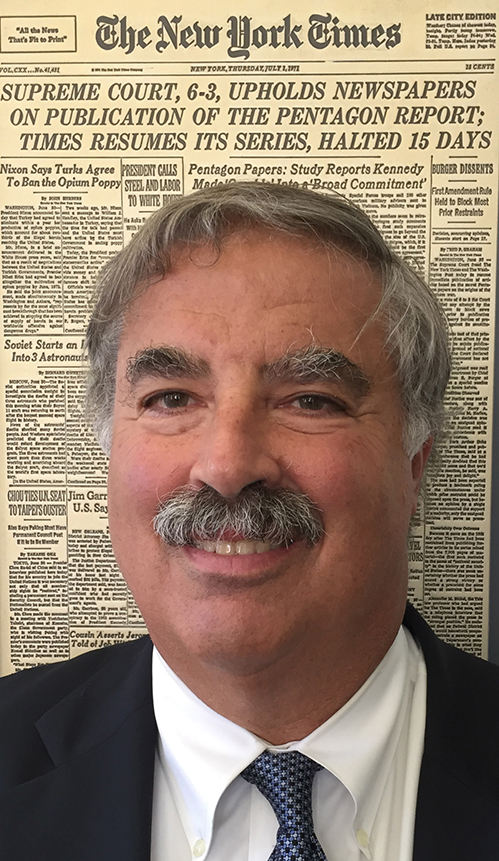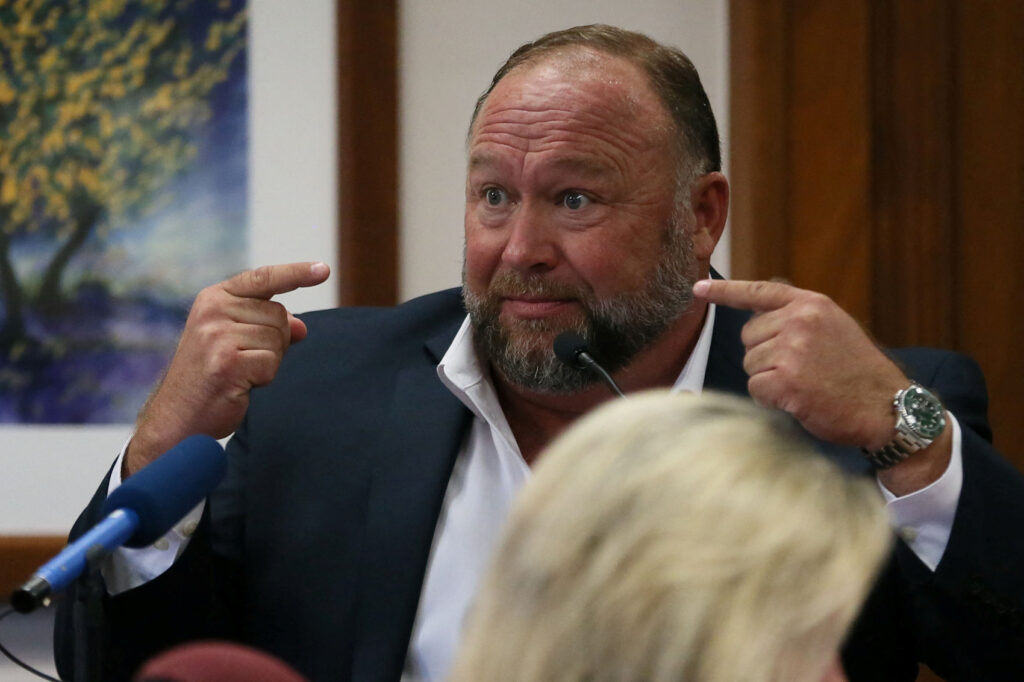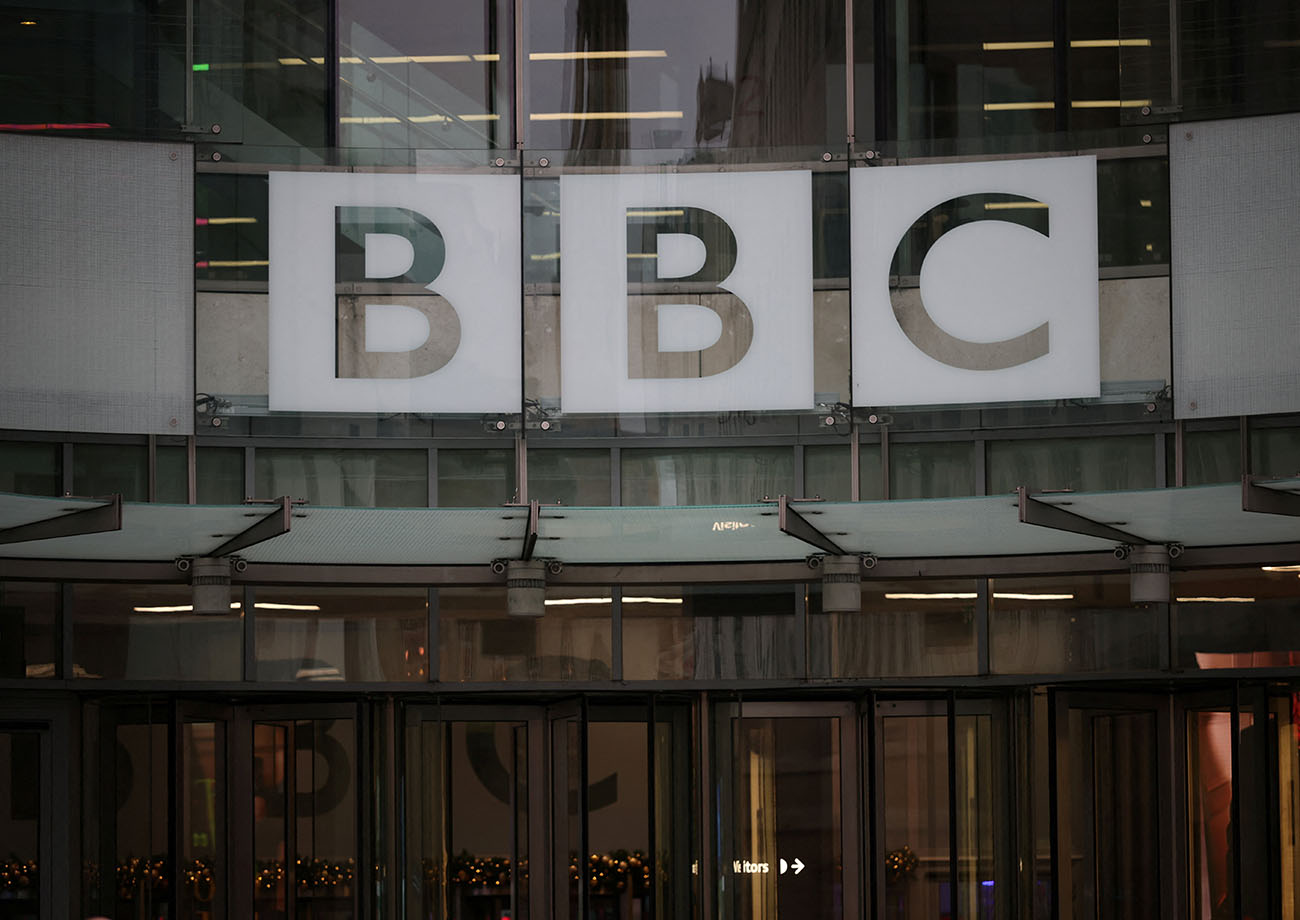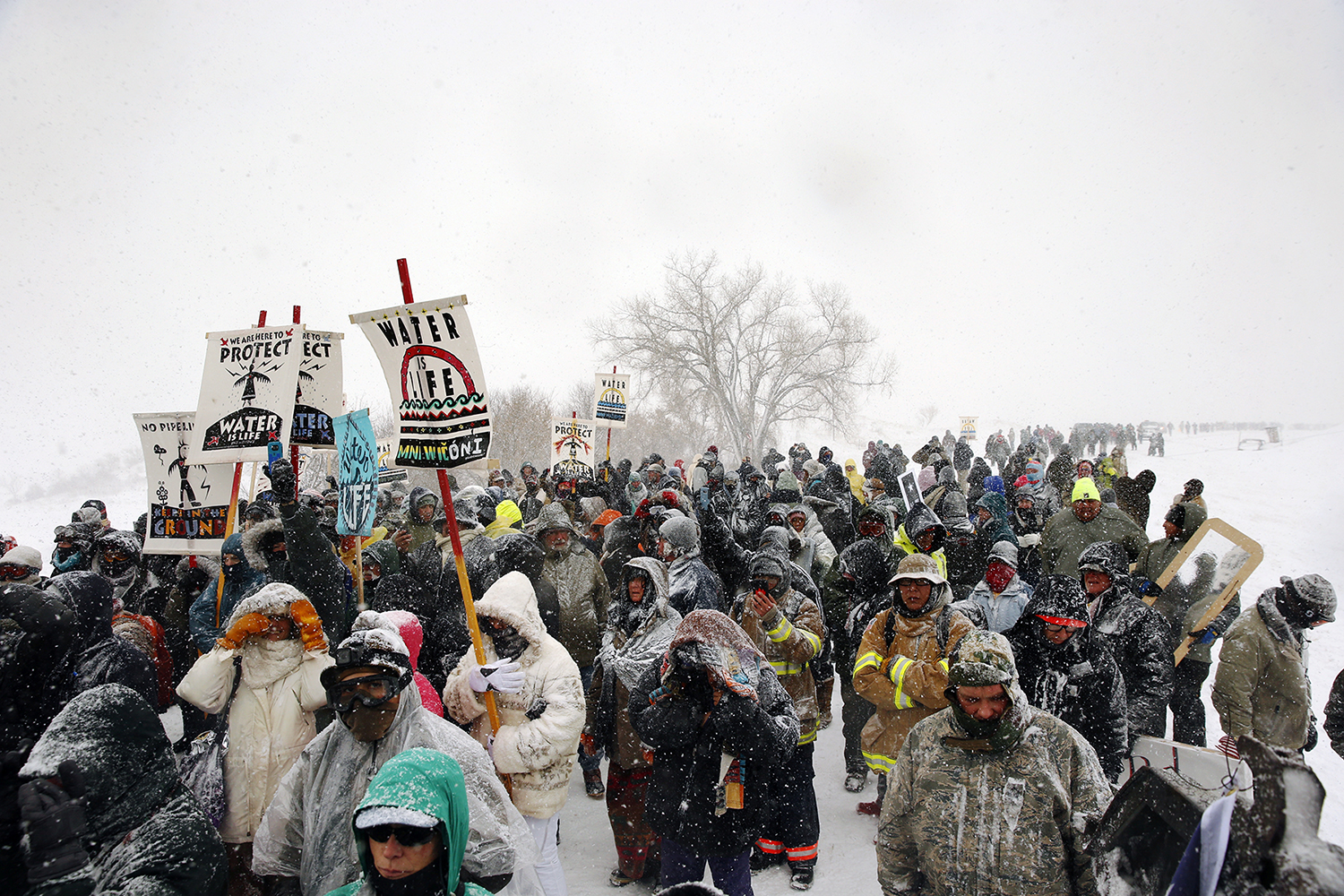Infowars host and conspiracy theorist Alex Jones dominated the news last week as an Austin jury decided that Jones must pay damages to parents Neil Heslin and Scarlett Lewis for years of broadcasting lies about what happened at Sandy Hook, where their six-year-old son Jesse was murdered. The jury awarded $4.1 million in compensatory damages and another $45.2 million in punitive damages.
Due to a Texas law capping the amount juries can decide in punitive awards, the total amount owed, $49.3 million, is likely to be reduced on appeal. But this case is steeped in the broader issues regarding the legal state-of-play of disinformation and the First Amendment. First Amendment Watch asked notable and thoughtful media legal scholars to reveal what this outcome reveals and portends for other Sandy Hook families who filed defamation suits, another in Texas and the third in Connecticut, slated to start next month. Media and legal scholars George Freeman, Lyrissa Lidsky, Lynn Oberlander and Timothy Zick weigh in.
George Freeman, Executive Director, Media Law Resource Center
The jury’s verdict confirms that if one makes outrageously and intentionally false and hurtful statements – and willfully disobeys  a judge’s ordinary discovery orders – he will have to pay a huge price. Our organization is dedicated to the principles of free speech and the protection of the First Amendment, but there is no room in our society for the preposterous knowing disinformation spewed by Jones, seemingly only for his personal benefit. One hopes that the judicial system will not allow his maneuvering into bankruptcy to avoid paying every penny to the victims of his intentional and harmful falsities.
a judge’s ordinary discovery orders – he will have to pay a huge price. Our organization is dedicated to the principles of free speech and the protection of the First Amendment, but there is no room in our society for the preposterous knowing disinformation spewed by Jones, seemingly only for his personal benefit. One hopes that the judicial system will not allow his maneuvering into bankruptcy to avoid paying every penny to the victims of his intentional and harmful falsities.
Lyrissa Barnett Lidsky, Raymond & Miriam Ehrlich Chair in U.S. Constitutional Law, University of Florida Fredric G. Levin College of Law
Since 1999 Alex Jones has built a vast audience and made millions by peddling conspiracy theories and survivalist supplies on his  Infowars website and radio show. Now Jones is on the hook for almost $50 million for labeling Sandy Hook parents Neil Heslin and Scarlett Lewis “crisis actors,” and lawsuits brought by several other victims of his lies are pending. A Texas jury found Jones liable for intentional infliction of emotional distress and defamation. One might take this verdict as a signal that the post-truth era is over. That conclusion goes too far, but the legal system worked exactly as it is supposed to in this highly unusual case.
Infowars website and radio show. Now Jones is on the hook for almost $50 million for labeling Sandy Hook parents Neil Heslin and Scarlett Lewis “crisis actors,” and lawsuits brought by several other victims of his lies are pending. A Texas jury found Jones liable for intentional infliction of emotional distress and defamation. One might take this verdict as a signal that the post-truth era is over. That conclusion goes too far, but the legal system worked exactly as it is supposed to in this highly unusual case.
The legal system does not police Truth writ large. If Jones had simply peddled conspiracy theories allegedly perpetrated by unnamed actors, large anonymous groups such as “the government” or “the CIA,” or even broad religious or ethnic groups such as Muslims or Jews, he would not have been subject to liability for his speech. That’s because the U.S. has chosen to let many kinds of toxic speech, including disinformation and hate speech, combat for traction in the marketplace of ideas. Rather than risk the perils of government censorship, the First Amendment assigns citizens the responsibility of refuting such toxic speech with counter-speech and common sense.
But Jones exited the broad confines of expression protected by the First Amendment by peddling the lie that Neil Heslin and Scarlett Lewis fabricated the death of their child.
As defamation (libel) cases go, this is about as easy a case as one can imagine. Inventing supposed “facts” that cause reputational harm to vulnerable individuals is the essence of the tort of defamation. The central issue in an ordinary defamation claim is whether the defendant was at fault in publishing a false and defamatory factual statement about the plaintiff. Here, Jones intentionally lied for profit, and he admitted—eventually—the falsity of his statements. The accusation that parents fabricated a child’s death to advance a social agenda is certainly one that would harm their reputations in the eyes of their community, though one hopes most of us are not as gullible as those in Jones’ audience who began harassing and threatening these poor parents. While proving Jones’ liability would have been easy, in this case it wasn’t even necessary. Jones defaulted on the issue of liability based on his misbehavior in withholding evidence, which the judge described as “a deliberate, contumacious, and unwarranted disregard for (the) Court’s authority.” Thus, the only issue the jury had to assess was what damages to award the parents.
Not surprisingly, the jury found that most of the parents’ damages stemmed not from Jones’ attack on the parents’ reputations but from his attack on their psyches. Intentional infliction of emotional distress is a legal claim (tort) designed to compensate the targets of intentionally or recklessly “outrageous” conduct that lies far outside society’s norms of acceptable behavior. What have we come to as a society if it is not outrageous to invent lies about grieving parents of a murdered child for one’s own profit and to continue peddling those lies even after the harm they cause is obvious? Again, though, the only question in this trial was how much the parents should receive in damages, and the millions awarded recognized the severity of the exacerbation of the parents’ grief and the “living hell” of death threats they suffered.
The punitive damages award, though, was where the jury symbolically expressed society’s outrage at Jones’ behavior. Punitive damages are designed to punish and deter egregiously bad behavior. Jones has shown an unwillingness to be deterred from his pattern of shameless lies, and he has continued to revile the plaintiffs, the judge in his trial and even the jury itself. He obstructed discovery in the case to such a degree that he lost his ability to even contest whether he should be liable; the sole issue in the trial was damages. If Jones’ conduct is not worthy of punitive damages, it is hard to know what is. That said, it is likely that the parents won’t collect the full amount the jury awarded them because of Texas’ damages caps and Jones’ financial shenanigans to try to protect his assets.
In this case, truth won. For now. But the “info wars” are ongoing, and it’s our duty as citizens to fight back.
Lynn Oberlander, Of Counsel/Ballard Spahr
Even as a free speech attorney, it is difficult to react to the plaintiffs’ substantial award of damages here with anything other than a feeling that justice has been done. While we need to have contentious, vigorous reporting on all topics of public interest –
 including the repeated horrors of mass shootings – it is well established that false statements of fact that cause damage to identifiable people can be penalized under the First Amendment, when made with the requisite level of fault. The Alex Jones trial in Texas did not actually decide whether he had defamed the plaintiffs. The trial was just to determine damages, as last year, Judge Gamble had issued default judgments against Jones and his company, based on what the court found to be their repeated and purposeful refusal to produce relevant documents in discovery. And Jones had also admitted in a deposition that the Sandy Hook massacre actually happened, acknowledging in some part that his previous “reporting” had been false.
including the repeated horrors of mass shootings – it is well established that false statements of fact that cause damage to identifiable people can be penalized under the First Amendment, when made with the requisite level of fault. The Alex Jones trial in Texas did not actually decide whether he had defamed the plaintiffs. The trial was just to determine damages, as last year, Judge Gamble had issued default judgments against Jones and his company, based on what the court found to be their repeated and purposeful refusal to produce relevant documents in discovery. And Jones had also admitted in a deposition that the Sandy Hook massacre actually happened, acknowledging in some part that his previous “reporting” had been false.
But this decision and other defamation trials in the past year that produced plaintiff’s verdicts (including, of course, Johnny Depp’s $10 million verdict against Amber Heard and Cardi B’s $4 million award in her lawsuit against YouTuber Tasha K) show that defamation law is alive and well. Contrary to the concerns raised in recent years by Justices Thomas and Gorsuch, and Judge Silberman of the D.C. Circuit, plaintiffs can and do win defamation cases. The actual malice standard set forth in New York Times v . Sullivan which requires that a public figure or public official prove that a defamatory statement had been made with knowledge of falsity or with reckless disregard for whether it was true or false does not act as “an effective immunity from liability,” as Justice Gorsuch put it in his 2021 dissent from denial of certiorari in Berisha v. Lawson. This verdict against Alex Jones helps prove that point.
Timothy Zick, Professor of Law, William & Mary Law School
The jury’s award, totaling nearly $50 million, sends a strong message that provocateurs like Alex Jones are responsible for the  damage caused by their despicable lies. As the Supreme Court once said, “there is no constitutional value in false statements of fact.” The jury’s damages award confirms that principle. Jones will have to pay, and justly so, for the lies he peddled about a child’s brutal murder.
damage caused by their despicable lies. As the Supreme Court once said, “there is no constitutional value in false statements of fact.” The jury’s damages award confirms that principle. Jones will have to pay, and justly so, for the lies he peddled about a child’s brutal murder.
While the plaintiffs and the public should celebrate this outcome, the jury’s award doesn’t answer some pressing questions about the scope of First Amendment protection for deceit and disinformation. Jones insists his words were just rhetoric, hyperbole, and opinion – all forms of expression typically protected by the First Amendment. We don’t know whether that First Amendment defense would have been successful in this case because Jones didn’t present it (other than by bloviating about free speech); he lost the case by default when he refused to participate in the legal proceedings. Unfortunately, the kind of deceit Jones has made his fortune from is not entirely exceptional. In a recent defamation case, Fox News successfully argued that no reasonable person could interpret statements made on Tucker Carlson’s program as statements of fact. If Jones had presented a “Tucker Carlson defense,” it is possible the judge or jury would have sided with him on the merits. Jones-adjacent media personalities and organizations will also attempt to justify falsehoods by claiming they are “just asking questions” or “reporting on the controversy.”
Alex Jones is a single force chipping away at our notion of collective truth. In this case, he was held accountable for publishing “alternative facts” that caused significant harm. This battle was won, but the longer war on deception and disinformation will continue.
Tags



